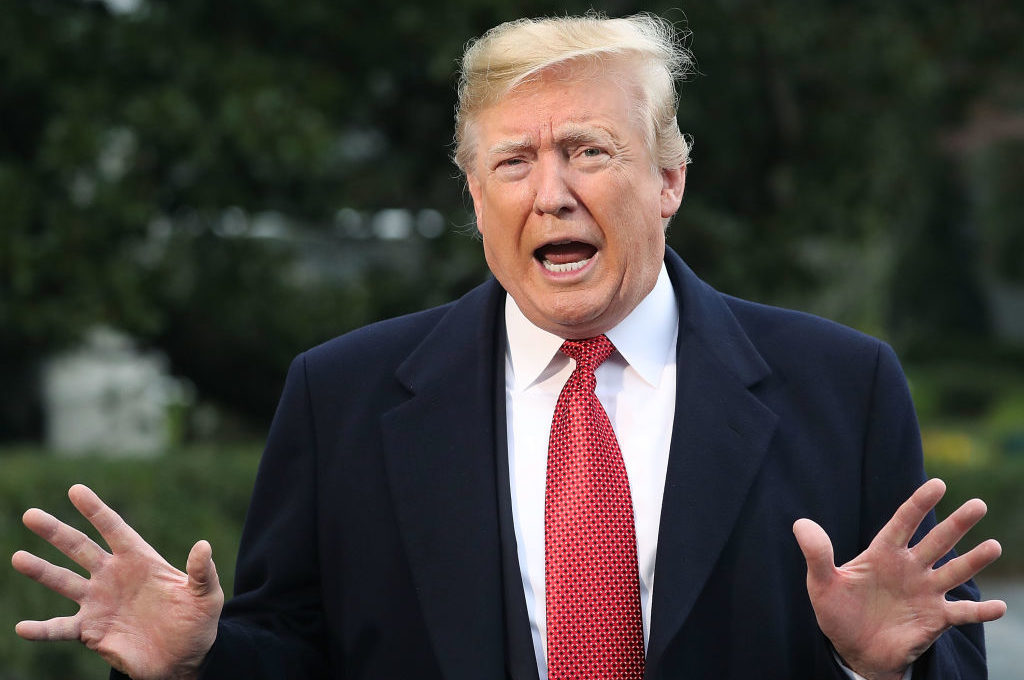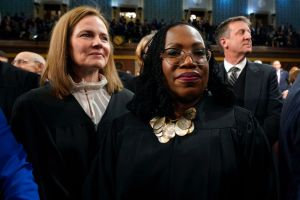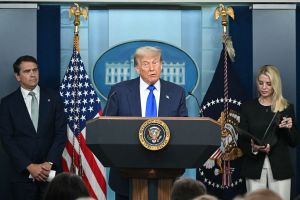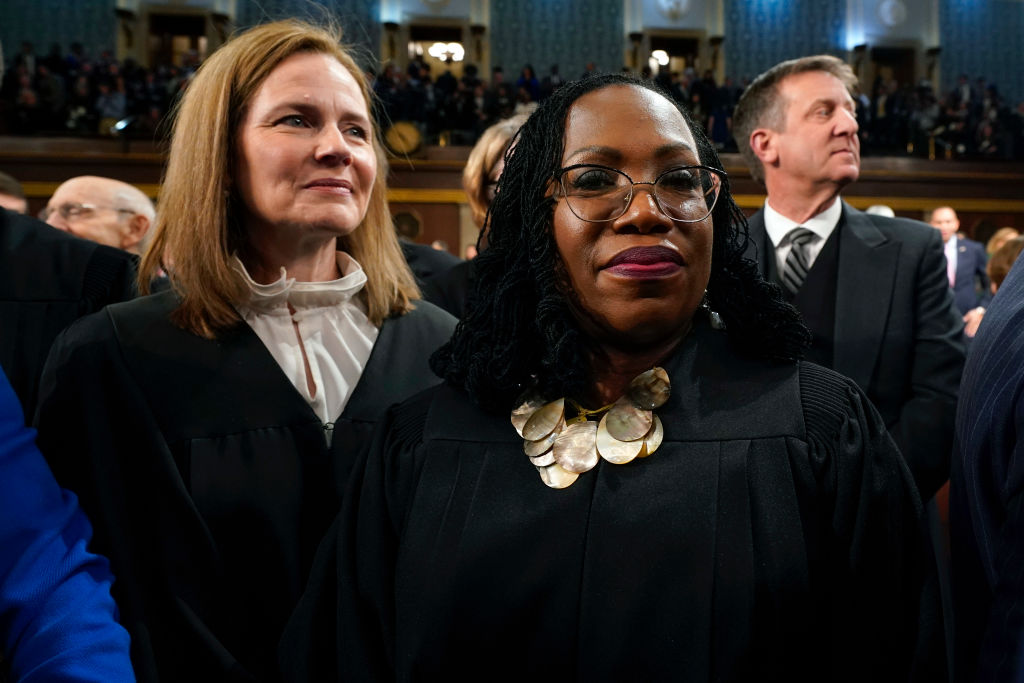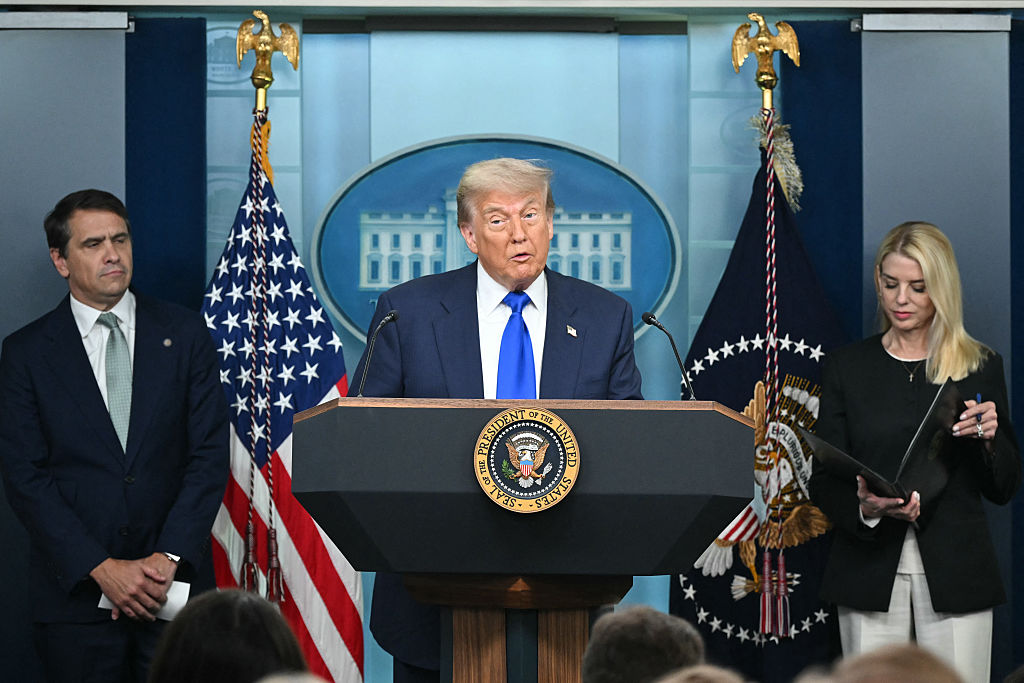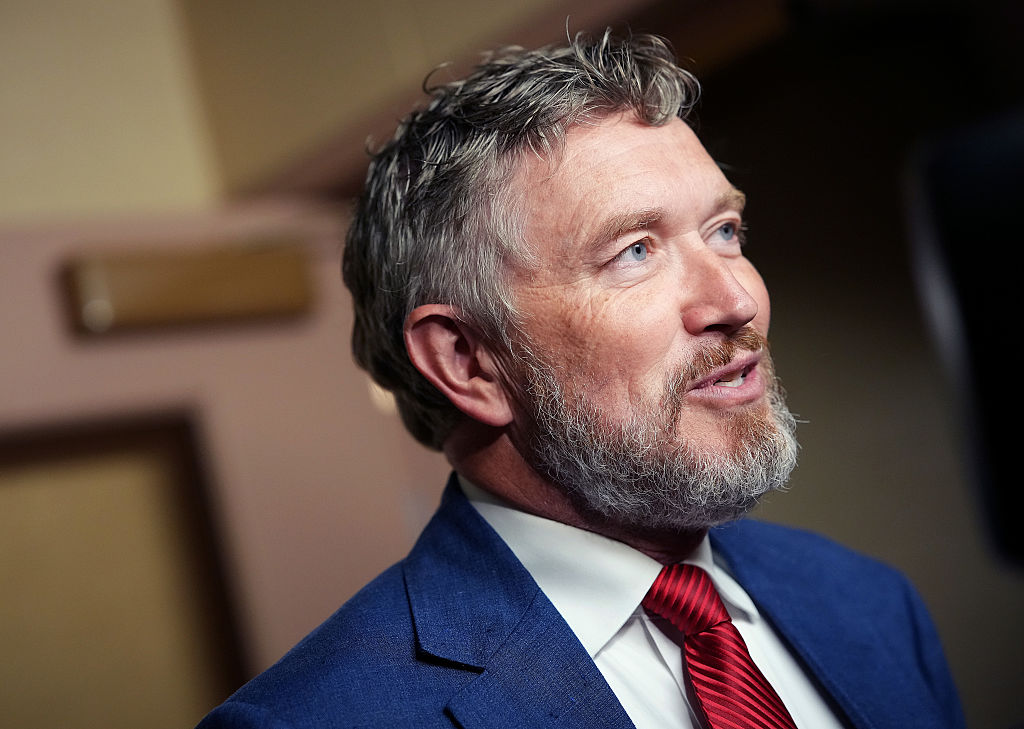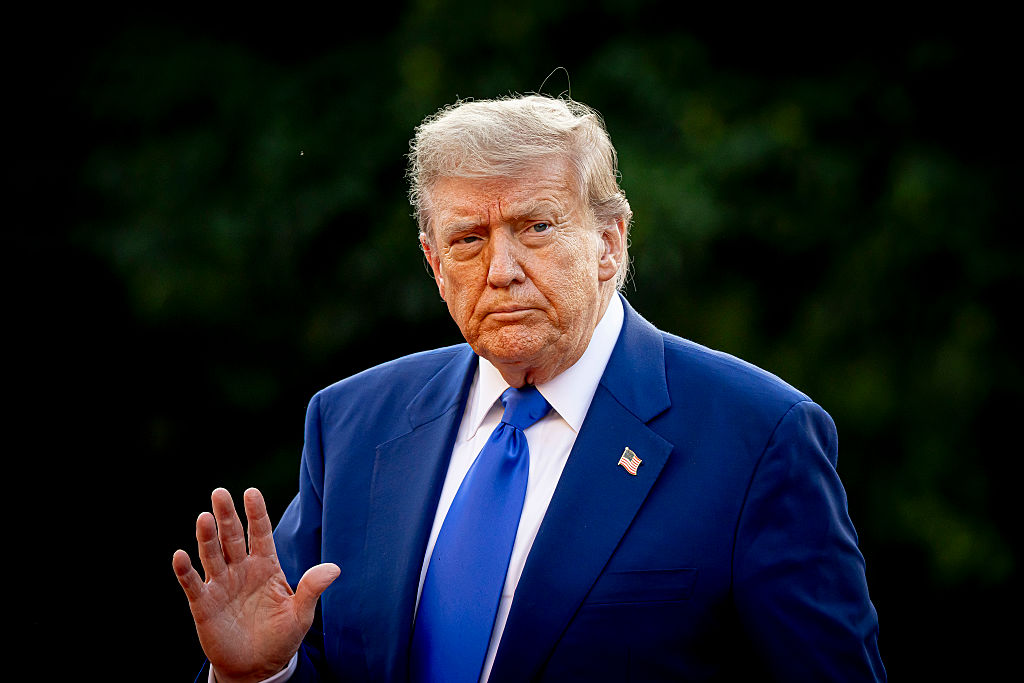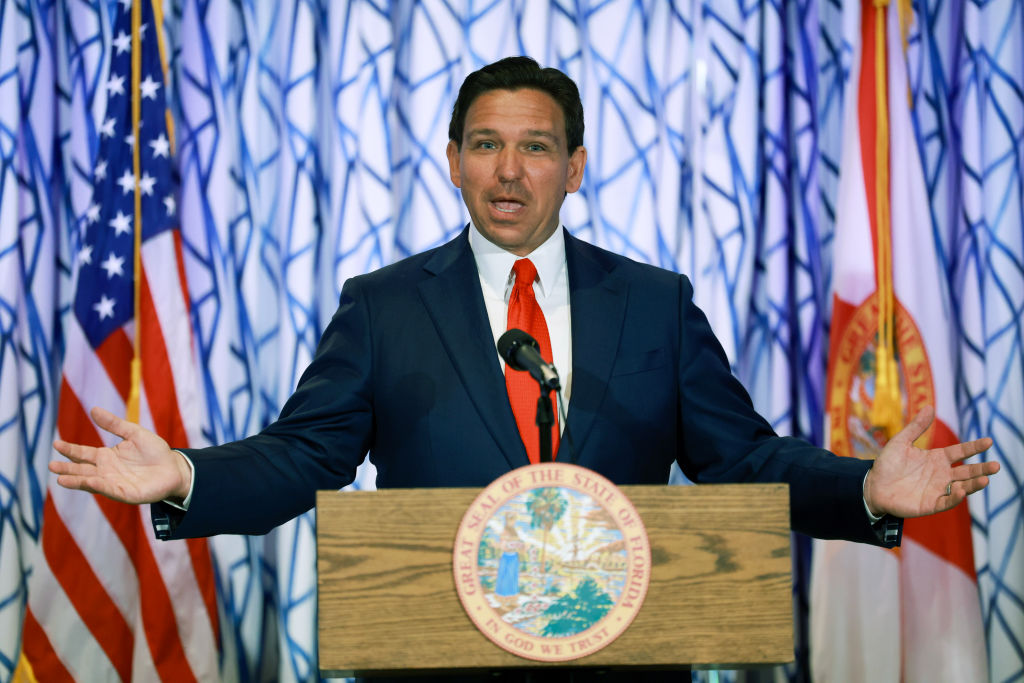When is a defeat like losing the House a victory? When Donald Trump says so. Trump, if only in terms of audience share, is one of the greatest orators of our age. The educated may mock him for his fractured syntax and stream-of-consciousness style, but most Americans do not speak in polished periods. Trump’s bravura vernacular is legitimized by reality television, and it appeals to audiences subjected to 24-hour news channels, where politicians use carefully crafted language to say nothing.
In his own populist manner, Trump is a master of language. Take his trademark slogan ‘Make America Great Again.’ Both make and great are amongst the oldest and simplest words in the language. Great is a particularly useful word, functioning as a noun, adjective, adverb, and intensifier, but currently free of any pejorative meanings.It did once connote ‘fat,’ but that use is archaic and unavailable to contemporary speakers.
The kicker in the slogan is, however, the adverb again. Another old and simple word, but this time with a complicated temporal meaning. Again signifies a once-and-future polity to which Trump, a modern-day King Arthur, can provide access.
Holly Yanacek and I have just edited a contemporary version of Raymond Williams’s Keywords: A Vocabulary of Culture and Society (1976 and 1983). We have updated 40 of Williams’s original selections, and replaced 85 of Williams’s original words with politically or culturally current alternatives. One Trumpish keyword that we retain from Williams’s 1976 list is elite. Elite is an early borrowing from French with the simple meaning ‘a collection of the best.’ In religious contexts, it was used frequently as a synonym for elect. It lost this religious connotation in the 18th and 19th centuries, and by the mid-20th century the social democratic left in Britain was using it to express a new way of thinking about class. In this view, elites still formed around power, knowledge, and money, but recruitment by class would be replaced by recruitment on merit
Britain’s Marxists hated this idea. Through the Seventies, they argued for a comprehensive revolution in which ‘workers’ control’ would replace the elites and produce a genuinely egalitarian society. In the early Nineties, this Loony Left morphed into New Labour and dropped all interest in equality. New Labour, Tony Blair’s ally Peter Mandelson declared, was ‘intensely relaxed about people becoming filthy rich.’ Yet New Labour retained a verbal hostility to elites, as proof of its ‘progressive’ politics. This unfocused hostility to elites seems to have crossed the Atlantic, changed political color, and become a keystone of Trump’s politics. As so often in the last 30 years, a political vocabulary developed on the left has been quickly annexed by the right.
Trump uses a powerful anti-elite discourse, but also remembers the term’s positive association with sports. He reconciles this by making his supporters a super elite, the winning team: ‘So let’s let them be elite, and we’re super elite, right? You’ve heard that. We’re the super elite.’ This is the kind of sentence that intellectuals like to quote as an example of Trump’s stupidity. Linguistically and politically, however, it’s very clever.
Fair is a word that we added to Williams’s original selection. Trump uses this word or its cognate fairness almost daily: it’s an absolute cornerstone of his political vocabulary Trump associates himself and his party with fairness: ‘You can either vote for Democrat mob rule or you can vote for a Republican Party that stands proudly for law and order, fairness, freedom, and justice.’ He directs the negative form of the adjective, unfair, at his political opponents, and complains about ‘unfair media coverage,’ China’s ‘unfair trade actions,’ and ‘unfair’ statements about Supreme Court Justice Brett Kavanaugh.
Fair is a Germanic inheritance with a complex semantic history. Its original meanings are attached to notions of beauty; however, in Middle English the term gained meanings related to justice. This notion of justice has remained ambiguous over the succeeding centuries. To treat people fairly is to treat them equally; yet to treat people fairly is to treat them according to principle of equity. So to be fair is to hesitate between treating everybody the same, and treating everybody according to their deserts. It is easy to see how this fits into a discourse which distinguishes between those who deserve help from government and those who do not.
Perhaps the single most important keyword for Williams was culture, meaning ‘a whole way of life.’ Williams’s linguistic inquiries began with this word. The definition of culture that describes works of art or other products of intellectual and creative activity dates back no further than the late 19th century. An earlier definition, denoting a general process of intellectual, spiritual, or aesthetic development, can be traced back to the 18th century.
The complex relationship between culture’s competing meanings (a general process of development; a particular way of life; works of artistic production) still makes it a complex contemporary term. Culture is also a keyword for Trump, but his culture is monolithic and unchanging, quite the reverse of Williams’s long evolutionary process: ‘Big mistake made all over Europe in allowing millions of people in who have so strongly and violently changed their culture!’
There is, however, a current usage on the Left which seems to come close to Trump in its simple equation of people and culture as an unchanging whole. On university campuses, a great deal of attention has lately been paid to cultural appropriation from African Americans and Native Americans, without due regard to their economic interests or emotional attachments. While that history is of the utmost importance, it is more than unfortunate that it often rests on racial essentialism, and the notion that African American and Native American cultures are unchanging and historically static.
Here Trump and the Left coincide. They identify a people and their culture in ways similar to those earlier orators Benito Mussolini and Adolf Hitler. While it would be wrong to suggest that Trump and the cultural appropriation zealots are identical to 20th-century fascists, it is striking and alarming how they share this analysis of culture, and their adoption of culture as a political weapon.
Colin MacCabe is Distinguished Professor of English and Film at the University of Pittsburgh. Keywords for Today: A 21st Century Vocabulary is published by Oxford University Press.



